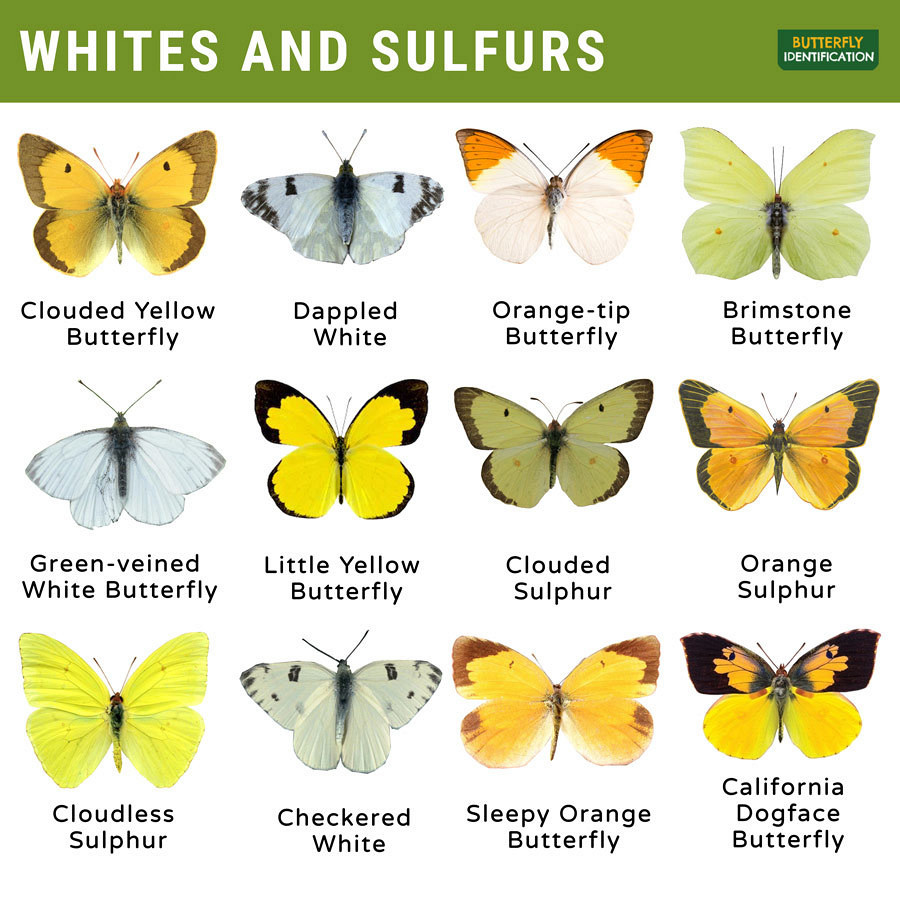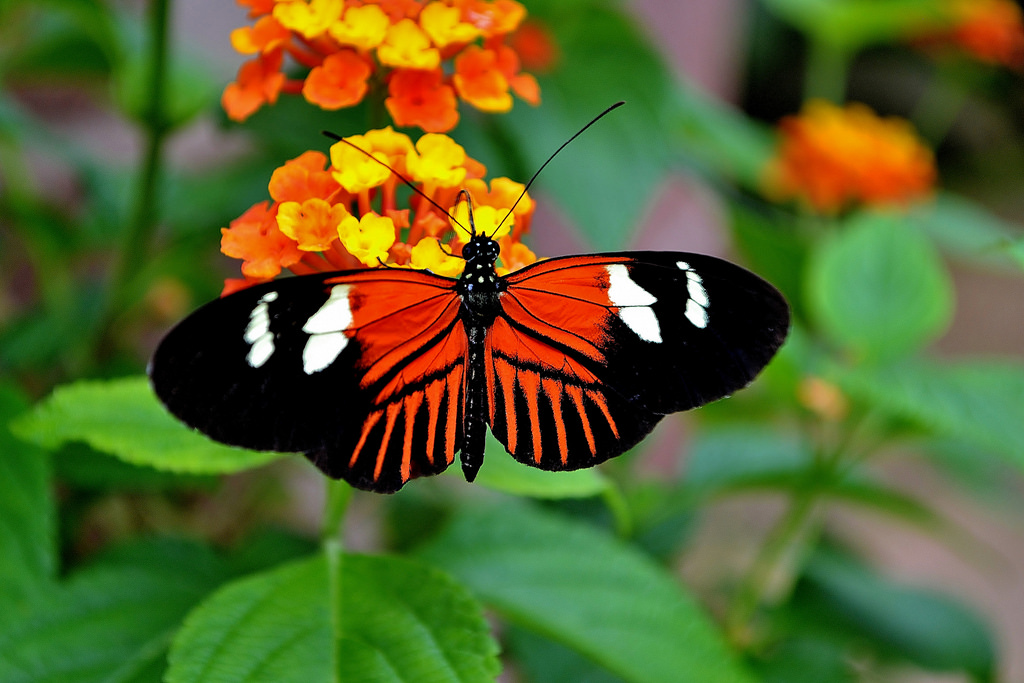Whites and Sulphurs (Pieridae)
The Pieridae, also known as the white and sulphurs has a large family consisting of about 76 genera as well as 1100 species that are medium in size. The bright colorations of most members of this group make them appear increasingly appealing.

Types of Whites and Sulfurs
Butterflies in This Family
Description and Identification
Caterpillar
Most of the larvae in this family are cylindrical-shaped with a yellow or green body, filled with hairy projections or small black bumps. Though the caterpillar of certain species may have a different appearance like the cabbage white species are bluish-green, having black rings or pints on their body.
Pupa
The chrysalis has a green body, often remaining concealed within leaves.
Adult
Sexual Dimorphism: Present
Color and Appearance: Most butterflies belonging to this family have a yellow, orange, or white body with spots of black on their forewings. However, the difference in wing patterns may vary according to the species. The dogface butterfly has sharply pointed wings while the orange and yellow sulphurs have rounded wings which are orange and lemon yellow respectively. The spots and patterns vary in males and females.
Average wingspan: 3cm to 6cm on an average (1.18 inches to 2.36 inches)
Flight pattern: Low, looping and zig zag
Eggs
They are of a yellowish-green color, being spindle-shaped.
Quick Facts |
| Distribution | Parts of Asia, Africa, Europe and America |
| Habitat | Meadows, forest edges, hedgerow, agricultural areas, roadsides, scrub, open and damp woodlands |
| Lifespan of adults | Less than a year |
| Host plants | Senecio jacobaea, Carduus spp, Chamaecrista fasciculate, Nasturtium officinale, plants of the Brassicaceae family, |
| Adult diet | Nectar of host plants |
Did You Know
- The butterflies of the white and sulphurs have four subfamilies.
- Since they have white and yellow wings, they have attained their name “white and sulphurs.”



